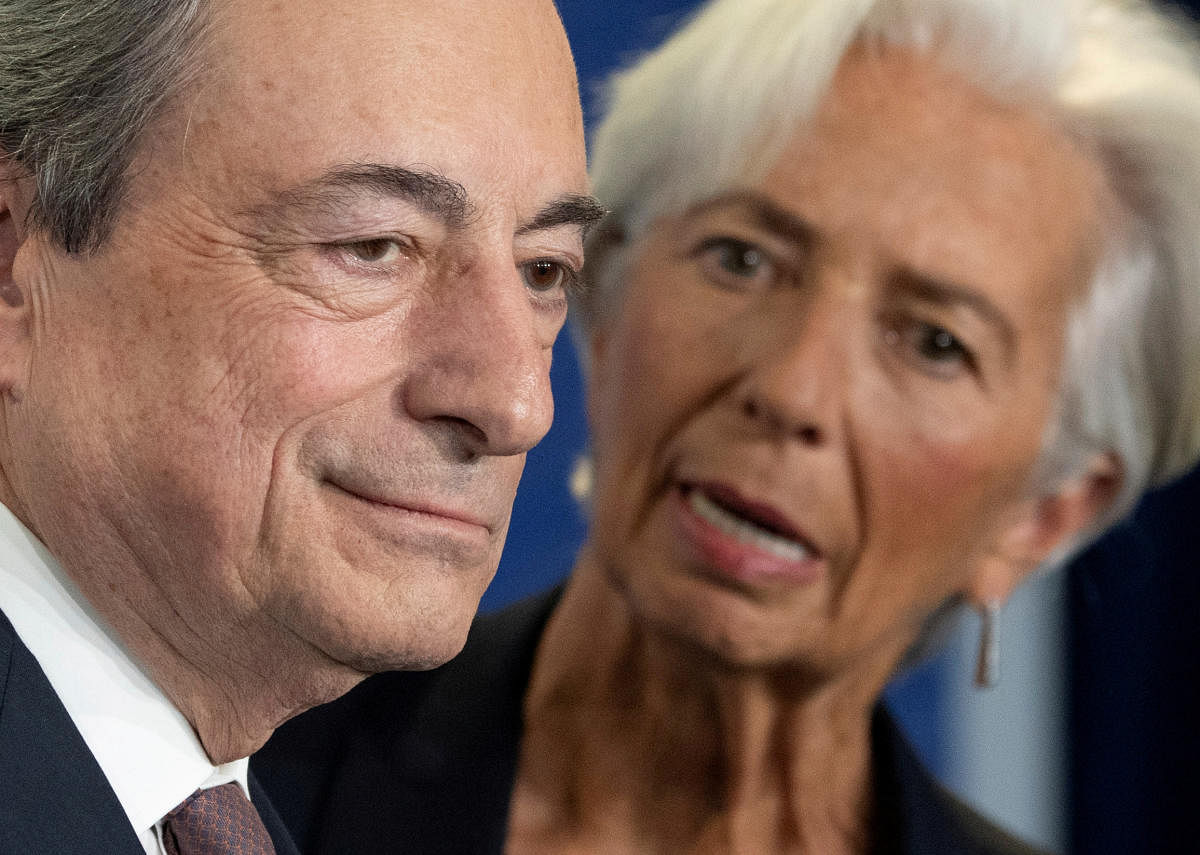
Christine Lagarde took over on Friday as the president of the European Central Bank, replacing Italy's Mario Draghi, as the institution has been riven by a return to easy money policies to stoke inflation and ward off recession.
The former French finance minister and International Monetary Fund chief "has today taken up her duties as President of the European Central Bank," the Frankfurt institution said in a statement.
After three male leaders since the bank opened its doors in 1998, Lagarde is the first woman to hold the president's seat.
A former corporate lawyer, her path through politics and international organisations has been marked by crisis management, holding the French finance ministry from 2007-2011 and the IMF post from 2011-2019.
But she lacks the formal economics qualifications of former guardians of the single currency.
Lagarde takes office at a time when the ECB's governing council is divided as rarely before over its latest round of monetary stimulus.
From November 1, the institution will restart "quantitative easing" (QE) bond purchases of 20 billion euros (USD 22.3 billion) per month, on top of historic low-interest rates and cheap loans to banks.
Beyond the six executive board members and 19 eurozone central bank governors on the council, Lagarde is also under pressure to better communicate ECB policy with the wider public.
Germans, in particular, are grumbling at low-interest rates' impact on their savings, with top-selling daily Bild depicting predecessor Draghi as "Count Draghila" saying he was draining accounts.
And as well as steering monetary policy, Lagarde told European lawmakers in September she wanted to dust off jargon-laden central bank communications and support female staff at the ECB and climate action.
She has also urged governments flush with cash, like Germany and the Netherlands, to take some of the burdens of stoking growth and inflation off central bankers.
"Countries with chronic budget surpluses like the Netherlands and Germany", need to increase spending to redress "imbalances" in the eurozone, investing more in infrastructure, education, and innovation, she told French broadcaster RTL Wednesday.